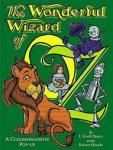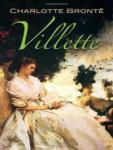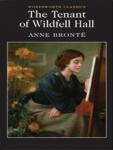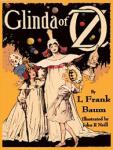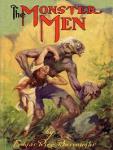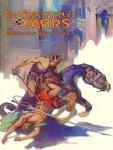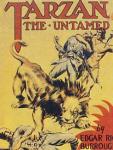A Tale of Two Cities
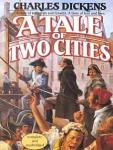
A Tale of Two Cities (1859) is a novel by Charles Dickens, set in London and Paris before and during the French Revolution. With well over 200 million copies sold, it ranks among the most famous works in the history of fictional literature.The novel depicts the plight of the French peasantry demoralized by the French aristocracy in the years leading up to the revolution, the corresponding brutality demonstrated by the revolutionaries toward the former aristocrats in the early years of the revolution, and many unflattering social parallels with life in London during the same time period. It follows the lives of several protagonists through these events. The most notable are Charles Darnay and Sydney Carton. Darnay is a French once-aristocrat who falls victim to the indiscriminate wrath of the revolution despite his virtuous nature, and Carton is a dissipated English barrister who endeavours to redeem his ill-spent life out of his unrequited love for Darnay's wife. The 45-chapter novel was published in 31 weekly installments in Dickens' new literary periodical titled All the Year Round. From April 1859 to November 1859, Dickens also republished the chapters as eight monthly sections in green covers. All but three of Dickens' previous novels had appeared only as monthly installments. The first weekly installment of A Tale of Two Cities ran in the first issue of All the Year Round on 30 April 1859. The last ran thirty weeks later, on 26 November.
Contents
- Book 1 - Recalled to Life Chapter 1 - The Period
- Book 1 - Recalled to Life Chapter 2 - The Mail
- Book 1 - Recalled to Life Chapter 3 - The Night Shadows
- Book 1 - Recalled to Life Chapter 4 - The Preparation
- Book 1 - Recalled to Life Chapter 5 - The Wine-shop
- Book 1 - Recalled to Life Chapter 4 - The Shoemaker
- Book 2 - the Golden Thread Chapter 1 - Five Years Later
- Book 2 - the Golden Thread Chapter 2 - A Sight
- Book 2 - the Golden Thread Chapter 3 - A Disappointment
- Book 2 - the Golden Thread Chapter 4 - Congratulatory
Related Books
Author other works
-
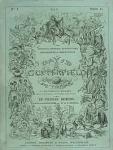
David Copperfield
Charles Dickens
David Copperfield is the common name of the eighth novel by Charles Dickens, first published as a novel in 1850. Its full title is The Personal History, Adventures, Experience and Observation of David Copperfield the Younger of Blunderstone Rookery (Which He Never Meant to Publish on Any Account). Like most of his works, it originally appeared in serial form during the two preceding years. Many elements of the novel follow events in Dickens' own life, and it is probably the most autobiographical of his novels. In the preface to the 1867 edition, Dickens wrote, "...like many fond parents, I have in my heart of hearts a favourite child. And his name is David Copperfield."The story traces the life of David Copperfield from childhood to maturity. David was born in Blunderstone, Suffolk, near Great Yarmouth, Norfolk, England, in 1820, six months after the death of his father. David spends his early years with his mother and their housekeeper, Peggotty. When he is seven years old, his mother re-marries Edward Murdstone. David is given good reason to dislike his stepfather and has similar feelings for Murdstone's sister Jane, who moves into the house soon afterwards. Murdstone thrashes David for falling behind in his studies. Following one of these thrashings, David bites him and soon afterwards is sent away to a boarding school, Salem House, with a ruthless headmaster, Mr. Creakle. There he befriends James Steerforth and Tommy Traddles.David returns home for the holidays to learn that his mother has given birth to a baby boy. Shortly after David returns to Salem House, his mother and her baby die and David returns home immediately. Peggotty marries a man named Mr Barkis. Murdstone sends David to work in a wine merchant in London, of which Murdstone is a joint owner.[4] Copperfield's landlord, Wilkins Micawber, is sent to debtors' prison (the King's Bench Prison) and remains there for several months before being released and moving to Plymouth. No one remains to care for David in London, so he decides to run away.He walks from London to Dover, where he finds his only relative, his unmarried, eccentric aunt Betsey Trotwood. She agrees to raise him, despite Murdstone's attempt to regain custody of David. David's aunt renames him "Trotwood Copperfield" and addresses him as "Trot", and it becomes one of several names to which David answers in the course of the novel.As David grows to adulthood, a variety of characters enter, leave, and re-enter his life. These include Peggotty and her family, including her orphaned niece "Little Em'ly", who moves in with them and charms the young David. David's romantic but self-serving school friend, Steerforth, seduces and dishonours Little Em'ly, precipitating the novel's greatest tragedy, and his landlord's daughter Agnes Wickfield, becomes his confidante. The novel's two most familiar characters are David's sometime mentor, the debt-ridden Micawber, and the devious and fraudulent clerk, Uriah Heep, whose misdeeds are eventually revealed with Micawber's assistance. Micawber is painted sympathetically even as the narrator deplores his financial ineptitude. Micawber, like Dickens' own father, is briefly imprisoned for insolvency.The major characters eventually get some measure of what they deserve, and few narrative threads are left hanging. Peggotty's brother Dan safely transports Emily to a new life in Australia, accompanied by the widowed Mrs. Gummidge and the Micawbers. All eventually find security and happiness in their adopted country. David marries the beautiful but naïve Dora Spenlow, who dies after failing to recover from a miscarriage early in their marriage. David then searches his soul and marries the sensible Agnes, who had always loved him and with whom he finds true happiness. David and Agnes then have at least four children, including a daughter named after his aunt Betsey Trotwood.
-
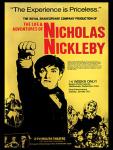
Nicholas Nickleby
Charles Dickens
Nicholas Nickleby; or, The Life and Adventures of Nicholas Nickleby is a novel by Charles Dickens. Originally published as a serial from 1838 to 1839, it was Dickens' third novel.Nicholas Nickleby's father dies unexpectedly after losing all of his money in a poor investment. Nicholas, his mother and his younger sister, Kate, are forced to give up their comfortable lifestyle in Devonshire and travel to London to seek the aid of their only relative, Nicholas's uncle Ralph Nickleby. Ralph, a cold and ruthless businessman, has no desire to help his destitute relations and hates Nicholas, who reminds him of his dead brother, on sight. He gets Nicholas a low-paying job as an assistant to Wackford Squeers, who runs the school Dotheboys Hall in Yorkshire. Nicholas is initially wary of Squeers (a very unpleasant man with one eye) because he is gruff and violent towards his young charges, but he tries to quell his suspicions. As Nicholas boards the stagecoach for Greta Bridge, he is handed a letter by Ralph's clerk, Newman Noggs. A once-wealthy businessman, Noggs lost his fortune, became a drunk and had no other recourse but to seek employment with Ralph, whom he loathes. The letter expresses concern for the innocent young man and offers assistance if Nicholas ever requires it. Once he arrives in Yorkshire, Nicholas comes to realise that Squeers is running a scam: he takes in unwanted children (most of whom are illegitimate, crippled or deformed) for a high fee, and starves and mistreats his charges while using the money sent by their parents to pad his own pockets. Squeers and his monstrous wife whip and beat the children regularly while spoiling their own son rotten. While he is there, Nicholas befriends a simple boy named Smike, who is older than the other “students” and now acts as an unpaid servant. Nicholas attracts the attention of Fanny Squeers, his employer's plain and shrewish daughter, who deludes herself into thinking that Nicholas is in love with her. She attempts to disclose her affections during a game of cards, but Nicholas doesn't catch her meaning. Instead he ends up flirting with her friend Tilda Price, to the consternation of both Fanny and Tilda's friendly but crude-mannered fiancé John Browdie. After being accosted by Fanny again, Nicholas bluntly tells her he does not return her affections and wishes to be free of the horrible atmosphere of Dotheboys Hall, earning her enmity.Fanny uses her new-found loathing of Nicholas to make life difficult for the only friend he has at the school: Smike, whom Squeers takes to beating more and more frequently. One day Smike runs away, but is caught and brought back to Dotheboys. Squeers begins to beat him, but Nicholas intervenes. Squeers strikes him across the face and Nicholas snaps, beating the schoolmaster violently. Quickly packing his belongings and leaving Dotheboys Hall, he meets John Browdie on the way. Browdie finds the idea that Squeers himself has been beaten uproariously funny, and gives Nicholas money and a walking staff to aid him on his trip back to London. At dawn, he is found by Smike, who begs to come with him. Nicholas and Smike set out towards London.Meanwhile, Kate and her mother are forced by Ralph to move out of their lodgings in the house of the kindly portrait painter Miss LaCreevy and into a cold and drafty house Ralph owns in a London slum. Ralph finds employment for Kate working for a fashionable milliner, Madame Mantalini. Her husband, Mr Mantalini, is a gigolo who depends on his (significantly older) wife to supply his extravagant tastes and offends Kate by leering at her. Kate proves initially clumsy at her job, which endears her to the head of the showroom, Miss Knagg, a vain and foolish woman who uses Kate to make herself look better. This backfires when a client prefers to be served by the young and pretty Kate rather than the ageing Miss Knagg. Kate is blamed for the insult, and as a result, Kate is ostracised by the other milliners and left friendless.Nicholas seeks out the aid of Newman Noggs, who shows him a letter that Fanny Squeers has written to Ralph viciously exaggerating the events of the beating. Noggs tells Nicholas, who is intent on confronting his uncle, that Ralph is out of town and advises him to find a job. Nicholas goes to an employment office, where he encounters a strikingly beautiful girl. His search for employment fails, and he is about to give up when Noggs offers him the meagre position of French teacher to the children of his neighbours, the Kenwigs family, and Nicholas is hired under the assumed name of “Johnson” to teach the children French.Ralph asks Kate to attend a dinner he is hosting for some business associates. When she arrives she discovers she is the only woman in attendance, and it becomes clear Ralph is using her as bait to entice the foolish nobleman Lord Frederick Verisopht to do business with him. The other guests include Verisopht's mentor and friend, the disreputable nobleman Sir Mulberry Hawk, who humiliates Kate at dinner by making her the subject of an offensive bet. She flees the table, but is later accosted by Hawk. He attempts to force himself on her but is stopped by Ralph. Ralph shows some unexpected tenderness towards Kate but insinuates that he will withdraw his financial help if she tells her mother about what happened.The next day, Nicholas discovers that his uncle has returned. He visits his mother and sister just as Ralph is reading them Fanny Squeers’ letter and slandering Nicholas. He confronts his uncle, who vows to give no financial assistance to the Nicklebys as long as Nicholas stays with them. His hand forced, Nicholas agrees to leave London, but warns Ralph that a day of reckoning will one day come between them.The next morning, Nicholas and Smike travel towards Portsmouth with the intention of becoming sailors. At an inn, they encounter the theatrical manager Vincent Crummles, who hires Nicholas (still going under the name of Johnson) on sight as his new juvenile lead and playwright with the task of adapting French tragedies into English and then modifying them for the troupe's minimal dramatic abilities. Nicholas and Smike join the acting company and are warmly received by the troupe, which includes Crummles’s formidable wife, their daughter, “The Infant Phenomenon”, and many other eccentric and melodramatic thespians. Nicholas and Smike make their debuts in Romeo and Juliet, as Romeo and the Apothecary respectively, and are met with great acclaim from the provincial audiences. Nicholas enjoys a flirtation with his Juliet, the lovely Miss Snevellici.Back in London, Mr Mantalini’s reckless spending has bankrupted his wife. Madame Mantalini is forced to sell her business to Miss Knagg, whose first order of business is to fire Kate. She finds employment as the companion of the social-climbing Mrs Wittiterly. Meanwhile, Sir Mulberry Hawk begins a plot to humiliate Kate for refusing his advances. He uses Lord Frederick, who is infatuated with her, to discover where she lives from Ralph. He is about to succeed in this plot when Mrs Nickleby enters Ralph’s office, and the two rakes switch their attentions from Kate’s uncle to her mother, successfully worming their way into Mrs Nickleby’s company and gaining access to the Wittiterly house. Mrs. Wittiterly grows jealous and admonishes Kate for flirting with the noblemen. The unfairness of this accusation makes Kate so angry that she rebukes her employer, who flies into a fit of hysterics. With no other recourse, Kate goes to her uncle for assistance, but he refuses to help her, citing his business relationships with Hawk and Verisopht. It is left to Newman Noggs to come to her aid, and he writes to Nicholas, telling him in vague terms of his sister’s immediate need for him. Nicholas immediately quits the Crummles troupe and returns to London.Noggs and Miss La Creevy confer, and decide that delay telling Nicholas Kate's plight until it is too late at night for him to seek out Hawk and take violent action. So, when Nicholas arrives, Both Noggs and Miss La Creevy are out. Nicholas is about to search the city for them when he accidentally overhears Hawk and Lord Frederick rudely toasting Kate in a coffeehouse. He is able to glean from their conversation what has happened, and confronts them. Hawk refuses to give Nicholas his name or respond to his accusations. When he attempts to leave, Nicholas follows him out, and leaps onto the running board of his carriage, demanding his name. Hawk strikes him with a riding crop, and Nicholas loses his temper, returning the blow and spooking the horses, causing the carriage to crash. Hawk is injured in the crash and vows revenge, but Lord Verisopht, remorseful for his treatment of Kate, tells him that he will attempt to stop him. Later, after Hawk has recovered, they quarrel over Hawk’s insistence on revenging himself on Nicholas. Verisopht strikes Hawk, resulting in a duel. Verisopht is killed, and Hawk flees to France. As a result, Ralph loses a large sum of money owed to him by the deceased lord.Nicholas collects Kate from the Wittiterlys, and with their mother and Smike, they move back into Miss LaCreevy’s house. Nicholas pens a letter to Ralph refusing, on behalf of his family, a penny of his uncle’s money or influence. Returning to the employment office, Nicholas meets Charles Cheeryble, a wealthy and extremely benevolent merchant who runs a business with his twin brother Ned. Hearing Nicholas’s story, the brothers take him into their employ at a generous salary and provide his family with a small house in a London suburb.Ralph encounters a beggar, who recognises him and reveals himself as Brooker, Ralph’s former employee. He attempts to blackmail Ralph with a piece of unknown information, but is driven off. Returning to his office, Ralph receives Nicholas’s letter and begins plotting against his nephew in earnest. Wackford Squeers returns to London and joins Ralph in his plots.Smike has the misfortune to run into Squeers on a London street, who kidnaps him. Luckily for Smike, John Browdie is honeymooning in London with his new wife Tilda and discovers his predicament. When they have dinner with Squeers, Browdie fakes an illness and takes the opportunity to rescue Smike and send him back to Nicholas. In gratitude, Nicholas invites the Browdies to dinner. At the party, also attended by the Cheerybles’s nephew Frank and their elderly clerk Tim Linkinwater, Ralph and Squeers attempt to reclaim Smike by presenting forged documents that he is the long-lost son of a man named Snawley (who, in actuality, is a friend of Squeers with children at Dotheboys Hall). Smike refuses to go, but the threat of legal action remains.While at work, Nicholas encounters the beautiful young woman he had seen in the employment office and realises he is in love with her. The brothers tell him that her name is Madeline Bray, the penniless daughter of a debtor, Walter Bray, and enlist his help in obtaining small sums of money for her by commissioning her artwork, the only way they can help her due to her tyrannical father.Arthur Gride, an elderly miser, offers to pay a debt Ralph is owed by Walter Bray in exchange for the moneylender’s help. Gride has illegally gained possession of the will of Madeline’s grandfather, and she will become an heiress upon the event of her marriage. The two moneylenders convince Bray to bully his daughter into accepting the disgusting Gride as a husband with the promise of paying off his debts. Ralph is not aware of Nicholas’ involvement with the Brays, and Nicholas does not discover Ralph’s scheme until the eve of the wedding. He appeals to Madeline to cancel the wedding, but despite her feelings for Nicholas, she is too devoted to her dying father to go against his wishes. On the day of the wedding, Nicholas attempts to stop it once more but his efforts prove academic when Bray, guilt-ridden at the sacrifice his daughter has made for him, dies unexpectedly. Madeline thus has no reason to marry Gride and Nicholas and Kate take her to their house to recover.Smike has contracted tuberculosis and become dangerously ill. In a last attempt to save his friend’s health, Nicholas takes him to his childhood home in Devonshire, but Smike’s health rapidly deteriorates. On his deathbed, Smike is startled to see the man who brought him to Squeers' school. Nicholas dismisses it as an illusion but it is later revealed that Smike was right. After confessing his love for Kate, Smike dies peacefully in Nicholas’s arms.When they return to Gride’s home after the aborted wedding, Ralph and Gride discover that Peg Sliderskew, Gride’s aged housekeeper, has robbed Gride, taking, amongst other things, the will. To get it back, Ralph enlists Wackford Squeers’s services to track down Peg. Noggs discovers this plot, and with the help of Frank Cheeryble, he is able to recover the will and have Squeers arrested.The Cheeryble brothers confront Ralph, informing him that his various schemes against Nicholas have failed. They advise him to retire from London before charges are brought up against him, as Squeers is determined to confess all and implicate Ralph. He refuses their help, but is summoned back to their offices that evening and told that Smike is dead. When he reacts to the news with vicious glee, the brothers reveal their final card. The beggar Brooker emerges, and tells Ralph that Smike was his own son. As a young man, Ralph had married a woman for her fortune, but kept it secret so as to not forfeit her inheritance. She eventually left him after bearing him a son, whom he entrusted to Brooker, who was then his clerk. Brooker, taking the opportunity for vengeance, took the boy to Squeers’ school and told Ralph the boy had died. Brooker now repents his action, but a transportation sentence kept him from putting the matter right. Devastated at the thought that his only son died as the best friend of his greatest enemy, Ralph commits suicide.Squeers is sentenced to transportation to Australia, and, upon hearing this, the boys at Dotheboys Hall rebel against the Squeers family and escape with the assistance of John Browdie. Nicholas becomes a partner in the Cheerybles' firm and marries Madeline. Kate and Frank Cheeryble also marry, as do Tim Linkinwater and Miss LaCreevy. Brooker dies penitent. Noggs recovers his respectability. The Nicklebys and their now extended family return to Devonshire, where they live in peace and contentment.
-
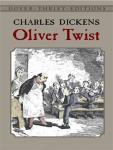
Oliver Twist
Charles Dickens
Oliver Twist, subtitled The Parish Boy's Progress, is the second novel by English author Charles Dickens, published by Richard Bentley in 1838. The story is about an orphan, Oliver Twist, who endures a miserable existence in a workhouse and then is placed with an undertaker. He escapes and travels to London where he meets the Artful Dodger, leader of a gang of juvenile pickpockets. Naively unaware of their unlawful activities, Oliver is led to the lair of their elderly criminal trainer Fagin.Oliver Twist is notable for Dickens' unromantic portrayal of criminals and their sordid lives. The book exposed the cruel treatment of many a waif-child in London, which increased international concern in what is sometimes known as "The Great London Waif Crisis": the large number of orphans in London in the Dickens era. The book's subtitle, The Parish Boy's Progress, alludes to Bunyan's The Pilgrim's Progress and also to a pair of popular 18th-century caricature series by William Hogarth, A Rake's Progress and A Harlot's Progress.An early example of the social novel, the book calls the public's attention to various contemporary evils, including child labour, the recruitment of children as criminals, and the presence of street children. Dickens mocks the hypocrisies of his time by surrounding the novel's serious themes with sarcasm and dark humour. The novel may have been inspired by the story of Robert Blincoe, an orphan whose account of hardships as a child labourer in a cotton mill was widely read in the 1830s. It is likely that Dickens's own early youth as a child labourer contributed to the story's development.
-
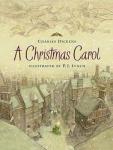
A Christmas Carol
Charles Dickens
A Christmas Carol is a novella by English author Charles Dickens, first published by Chapman & Hall on 19 December 1843. The story tells of sour and stingy Ebenezer Scrooge's ideological, ethical, and emotional transformation resulting from supernatural visits from Jacob Marley and the Ghosts of Christmas Past, Present, and Yet to Come. The novella met with instant success and critical acclaim.The book was written and published in early Victorian Era Britain, a period when there was both strong nostalgia for old Christmas traditions and an initiation of new practices such as Christmas trees and greeting cards. Dickens's sources for the tale appear to be many and varied but are principally the humiliating experiences of his childhood, his sympathy for the poor, and various Christmas stories and fairy tales.The tale has been viewed by critics as an indictment of 19th-century industrial capitalism. It has been credited with restoring the holiday to one of merriment and festivity in Britain and America after a period of sobriety and sombreness. A Christmas Carol remains popular, has never been out of print, and has been adapted to film, stage, opera, and other media multiple times.
-
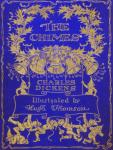
The Chimes
Charles Dickens
The Chimes: A Goblin Story of Some Bells that Rang an Old Year Out and a New Year In, a short novel by Charles Dickens, was written and published in 1844, one year after A Christmas Carol and one year before The Cricket on the Hearth. It is the second in his series of "Christmas books": five short books with strong social and moral messages that he published during the 1840s.One New Year's Eve, Trotty, a "ticket-porter" or casual messenger, is filled with gloom at the reports of crime and immorality in the newspapers, and wonders whether the working classes are simply wicked by nature. His daughter Meg and her long-time fiancé Richard arrive and announce their decision to marry next day. Trotty hides his misgivings, but their happiness is dispelled by an encounter with the pompous Alderman Cute, plus a political economist and a young gentleman with a nostalgia, all of whom make Trotty, Meg and Richard feel they hardly have a right to exist, let alone marry.Trotty carries a note for Cute to Sir Joseph Bowley MP, who dispenses charity to the poor in the manner of a paternal dictator. Bowley is ostentatiously settling his debts to ensure a clean start to the new year, and berates Trotty because he owes a few shillings to his local shop which he cannot pay off. Returning home, convinced that he and his fellow poor are naturally ungrateful and have no place in society, Trotty encounters Will Fern, a poor countryman, and his orphaned niece, Lilian. Fern has been unfairly accused of vagrancy and wants to visit Cute to set matters straight, but from a conversation overheard at Bowley's house, Trotty is able to warn him that Cute plans to have him arrested and imprisoned. He takes the pair home with him and he and Meg share their meagre food and poor lodging with the visitors. Meg tries to hide her distress, but it seems she has been dissuaded from marrying Richard by her encounter with Cute and the others.In the night, the bells seem to call Trotty. Going to the church, he finds the tower door unlocked and climbs to the bellchamber, where he discovers the spirits of the bells and their goblin attendants who reprimand him for losing faith in man's destiny to improve. He is told that he fell from the tower during his climb and is now dead, and Meg's subsequent life must now be an object lesson for him. There follows a series of visions which he is forced to watch, helpless to interfere with the troubled lives of Meg, Richard, Will and Lilian over the subsequent years. Richard descends into alcoholism; Meg eventually marries him in an effort to save him, but he dies ruined, leaving her with a baby. Will is driven in and out of prison by petty laws and restrictions; Lilian turns to prostitution. In the end, destitute, Meg is driven to contemplate drowning herself and her child, thus committing the mortal sins of murder and suicide. The chimes' intention is to teach Trotty that, far from being naturally wicked, mankind is formed to strive for nobler things, and will fall only when crushed and repressed beyond bearing. Trotty breaks down when he sees Meg poised to jump into the river, cries that he has learned his lesson and begs the Chimes to save her, whereupon he finds himself able to touch her and prevent her from jumping.With this the vision ends and Trotty finds himself awakening at home as if from a dream, as the bells ring in the New Year, and the book ends with celebrations for Meg and Richard's wedding-day.
